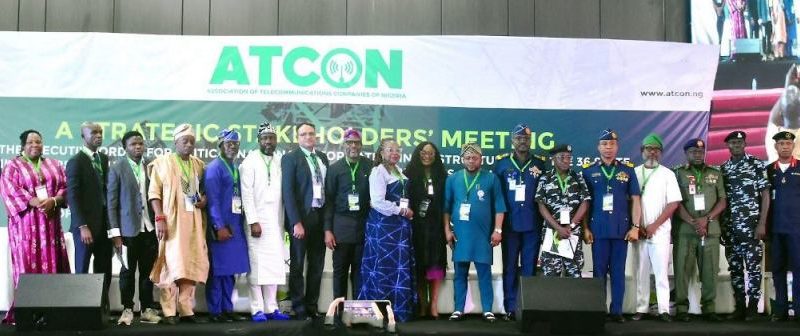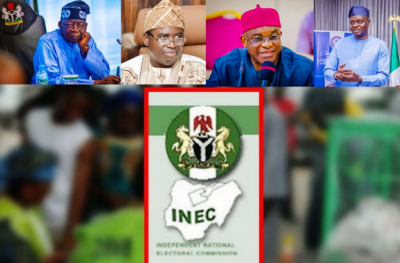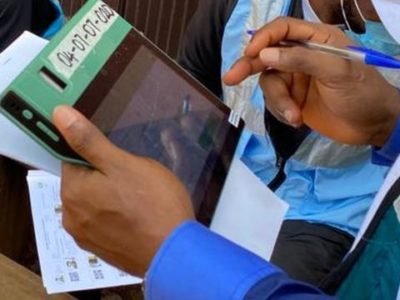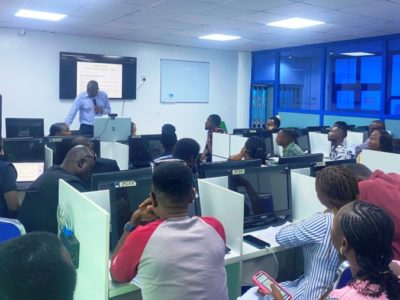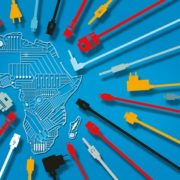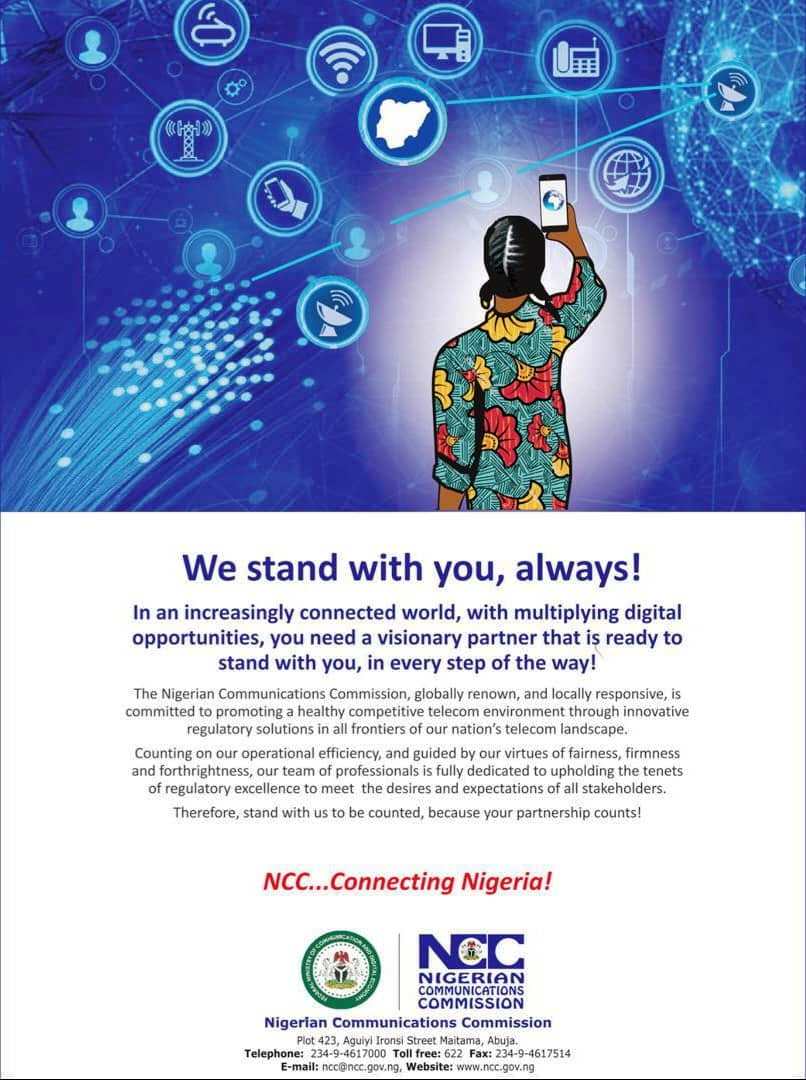Matters eRising with Olusegun Oruame

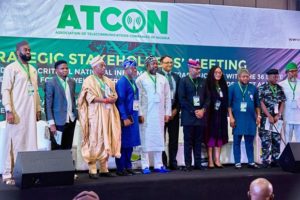


In August 2024, on the eve of Nigeria’s Hunger Protest, the Association of Telecoms Companies of Nigeria (ATCON) hosted a Strategic Stakeholders Meeting in Abuja. It became a turning point for dialogue between government and the private ICT sector.
RELATED: Nigerian government enacts Critical National Information Infrastructure Protection Order, 2024
One year later, ATCON consolidated that momentum with a second edition focused squarely on Critical National Information Infrastructure (CNII). The telecoms sector contributes nearly 20% of Nigeria’s GDP but remains under threat from persistent vandalism, sabotage, and policy inertia.
ALSO READ: Nigeria strengthens investors’ confidence as Buhari announces plans for Executive Order on Critical National Infrastructure
The theme underscored urgency: “Rallying Critical Stakeholders to Drive the Successful Execution of the Executive Order on Critical National Information Infrastructure.”
Why the Executive Order Matters
On June 24, 2024, President Bola Ahmed Tinubu signed the Designation and Protection of Critical National Information Infrastructure Order (CNII 2024) under the Cybercrime Act 2015. This order formally recognised telecoms as critical to national security, economic competitiveness, and public safety.
The Executive Order finally gave legislative teeth to years of agitation by telcos who have suffered fibre cuts, vandalism, multiple taxation, and insurgency-related disruptions. Airtel once reported over 1,022 fibre cuts in just seven months, with 60% due to vandalism. Its then Director of Corporate Communications & CSR, Emeka Oparah would lament in 2022:
“Government has the responsibility to urgently deal with the menace of vandalism, insecurity and insurgency otherwise the current spate of dropped calls experienced by some telecommunications consumers would continue.”
Still, while the order is crucial, its implementation remains fragile—hence ATCON’s mobilisation of stakeholders across 36 states, the FCT, security agencies, and ICT regulators.
Three Pillars of the Stakeholders’ Dialogue
ATCON’s Abuja meeting revolved around three urgent priorities:
- Securing Statewide Commitment – Mobilizing governors, commissioners, and ICT agencies to adopt CNII protection at state level.
- Accelerating Broadband Development – Partnering with states to expand last-mile connectivity and digital infrastructure.
- Incentivizing Investments – Ensuring telcos can operate securely across Nigeria without the burden of extortionate levies or threats.
ATCON’s dialogue pillars highlight how Abuja policymakers and Lagos businesses neglect sub-national governments, widening gaps between states and operators. This explains the strong presence of the military, police, air force, and the Office of the National Security Adviser (ONSA). For the first time, telecom security was framed as a national defense issue.
Representatives from all six geopolitical zones deliberated on rescuing an industry stuck in transition and plagued by malicious disruptions. In the mix were attendees that included the amiable Niger State’s Commissioner for Digital Economy, Hon. Suleiman Isah, and Nasarawa’s NASITDEA Director General, Sani Haruna Sani. They joined Terwase Gbande-Hembaor, CEO of Benue Digital Infrastructure Company PLC, alongside other stakeholders united for Nigeria’s digital vision.
Historical Context: The Sector’s Struggles
Nigeria’s telecom story has always been one of growth amid disruption. Since GSM services launched in 2001 with Econet (now Airtel), MTN, and Globacom, private operators have poured billions into infrastructure expansion.
Yet, protection has lagged. The CNI Bill, once demanded in 2022 by former ATCON president Ikechukwu Nnamani, remains unpassed. Previous Executive Orders, including one under President Muhammadu Buhari, fell short on enforcement.
In the same 2022, the federal government declared telecom facilities as CNI requiring state-level protection across all 36 states after expressing shock at targeted attacks by some state agencies against telecom facilities, disguised as levy collection activities. It stressed such actions violate national laws, threaten security and economic growth, and urged states to immediately end the practice.
President Buhari directed Minister Isa Pantami to collaborate with MDAs to protect Critical National Infrastructure (CNI). But that Executive Order faced limitations in effective execution, highlighting challenges in safeguarding Nigeria’s critical digital and physical infrastructure.
The result? Telcos repeatedly absorb losses while Nigeria’s digital backbone remains vulnerable to sabotage and state-level policy contradictions.
Telecoms: GDP Driver and Growth Catalyst
Despite challenges, the telecom and digital economy sector remains one of Nigeria’s most resilient growth engines.
- ICT contributed 17.68% to GDP in Q4 2024.
- Telecoms alone accounted for 14.4%.
- Digital financial services, AI adoption, and enterprise tech are multiplying this impact across other industries.
This positions telecoms not just as a revenue stream, but as the bedrock of Nigeria’s digital future—from fintech to e-governance, from smart agriculture to national security.
Why ATCON’s Stakeholders Dialogue Must Continue
ATCON’s forum is now one of the few platforms bringing together:
- Federal agencies and ONSA
- Security and defense institutions
- State commissioners for digital economy
- Telecom operators headquartered in Lagos and Abuja but with infrastructure nationwide
This matters. Protecting telecom infrastructure cannot be federal-only. It requires state-level enforcement, community buy-in, and security collaboration across all six geopolitical zones.
As ATCON president Tony Izuagbe Emoekpere aptly put it:
“Damaging telecom infrastructure doesn’t just affect operators, it disrupts lives, stalls economies, and undermines national development.”
The Road Ahead: From Executive Order to Full CNII Act
While the Executive Order of 2024 is commendable, the long-term solution remains the passage of a Critical National Infrastructure Act. This would:
- Criminalize willful damage to telecom assets.
- Empower states and federal agencies with a clear mandate for protection.
- Encourage more investment into broadband, cybersecurity, and AI infrastructure.
Until then, ATCON’s dialogue must be sustained, deepened, and expanded—bringing operators, governments, and communities into a shared responsibility for Nigeria’s digital backbone.
Building a Resilient Digital Economy
Nigeria’s telecom sector has proven itself as an engine of growth, innovation, and national integration. But without stronger protection of infrastructure, its future is uncertain.
If the government’s recent reforms and policy shifts are ever to translate into real economic growth and sustained GDP contribution, then gatherings like ATCON’s must not just be encouraged—they must be amplified.
ATCON has done what many thought impossible: it has cracked open a genuine channel of dialogue between government and the ICT private sector, a bridge that Nigeria’s digital future desperately needs. The forum is more than an event; it is a lifeline for resolving the sector’s most stubborn challenges, a window of possibility in an industry often stifled by fragmented voices and disjointed policymaking.
Much like last year, this gathering symbolizes progress, but under Emoekpere’s leadership it carries even greater urgency. In a time when Nigeria must think and act beyond geographical boundaries and siloed decisions, the ability to convene open, expansive dialogue has become not just strategic—but existential.
The path forward is clear: federal recognition, state collaboration, investor confidence, and multi-stakeholder dialogue. ATCON’s gatherings are not just about policy—they are about securing the very foundation of Nigeria’s digital economy.

